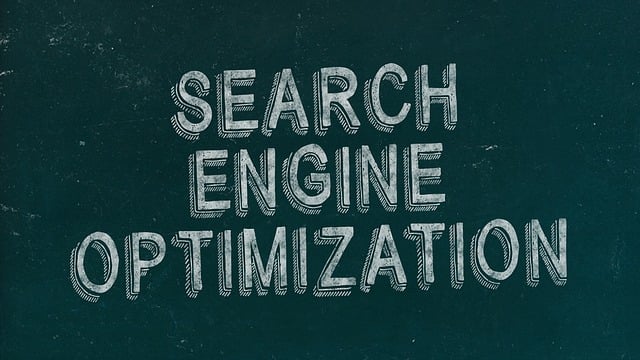Schema markup and rich snippets are essential components of advanced SEO strategies. By providing structured data, these tools help search engines understand web page content better, enhancing search results with contextual details. Correct implementation signals high-quality content, improving site accessibility, click-through rates, and search rankings. Rich snippets, especially for e-commerce and competitive industries, make website content more visually appealing and informative on SERPs, encouraging clicks. Case studies show tangible benefits like increased CTRs, conversions, and user engagement through schema markup and rich snippets. Tools like Google's Structured Data Markup Helper simplify the implementation process, while AI advancements will drive future relevance and personalization in search results, making advanced SEO strategies increasingly vital for business success.
In today’s digital landscape, understanding Advanced SEO strategies is crucial for online success. One such strategy, Advanced Schema and Rich Snippets, empowers businesses to enhance search engine results and boost click-through rates. This comprehensive guide delves into the fundamentals of Schema Markup—a powerful tool for structuring data—and its symbiotic relationship with Rich Snippets. We explore various types, implementation best practices, optimization for voice search, and future trends, offering valuable insights that can revolutionize your online visibility.
Understanding Schema Markup: The Foundation of Advanced SEO

Schema markup is a powerful tool that forms the foundation of advanced SEO strategies. It’s a structured data format that helps search engines understand and interpret the content on web pages, going beyond basic HTML. By providing clear context about the information presented, schema markup enables search engines to enrich search results with relevant details, making them more informative and user-friendly.
This markup language uses a set of predefined properties and values to describe various elements of a webpage, such as businesses, products, reviews, events, and more. When implemented correctly, it signals to search engines that your content is rich and valuable, potentially boosting its visibility in search results. Advanced SEO practitioners leverage schema markup to enhance their site’s accessibility, improve click-through rates, and ultimately drive higher rankings.
Rich Snippets Explained: Enhancing Search Engine Results

Rich snippets, an advanced SEO strategy, are a powerful tool for enhancing search engine results and drawing more traffic to your website. They provide search engines with structured data that allows them to display information from your site in a more visually appealing and informative manner within the search engine results page (SERP). This structured data can include ratings, reviews, prices, ingredients, or any other relevant details that are specific to your content.
By implementing rich snippets, you make it easier for potential customers to quickly scan and understand what your website offers, increasing the likelihood of them clicking through to your site. Search engines prioritize rich snippet-optimized content, recognizing it as valuable and trustworthy. This strategy is particularly beneficial for businesses with e-commerce sites or those looking to stand out in a crowded digital landscape, ensuring their online presence is as engaging and effective as possible.
Types of Rich Snippets and Their Impact on Click-Through Rates

In the realm of advanced SEO strategies, Rich Snippets stand out as a powerful tool to enhance search engine results pages (SERPs). These visually appealing and informative snippets provide users with a quick glimpse into the content of a webpage, often including stars, ratings, prices, or other relevant details. Types include product rich snippets, event rich snippets, and recipe rich snippets, among others, each designed to showcase specific types of information in a digestible format.
The impact on click-through rates (CTR) is significant. Users are more likely to interact with search results that offer valuable, at-a-glance insights. For instance, an e-commerce site using product rich snippets can expect higher CTRs as shoppers can instantly compare prices and reviews without clicking through to the individual listings. This not only improves user experience but also encourages more organic traffic, demonstrating the direct correlation between Rich Snippets and advanced SEO strategies in driving better search engine performance.
Implementing Structured Data for Better Search Visibility

Implementing structured data is a powerful advanced SEO strategy that can significantly boost search visibility. By providing search engines with clear, well-organized information about your content, you help them understand and present your web pages more accurately in search results. This, in turn, increases click-through rates as users are more likely to find what they’re looking for in the displayed snippets.
Structured data allows you to go beyond basic text and meta tags by adding relevant details such as ratings, prices, publication dates, and more. These enhancements create rich snippets—those featured boxes with additional information that appear below search results. Rich snippets not only catch users’ attention but also encourage interactions, leading to improved user experience and potentially higher rankings through Google’s enhanced search algorithms that favor such content.
Optimizing for Voice Search with Advanced Schema Markup

Voice search is on the rise, and with good reason. It’s a convenient way for users to interact with search engines, especially when their hands are full or they’re on the move. Optimizing your content for voice search means thinking differently about how you structure and present information. This is where Advanced Schema Markup comes into play as one of the powerful tools in an advanced SEO strategy.
By implementing structured data using Schema markup, you provide search engines with a clearer understanding of the context and meaning behind your content. This is crucial for voice search queries, which are often more natural language-based and focused on specific tasks or questions. For instance, if someone asks, “Where’s the nearest Italian restaurant?” a well-optimized schema can help ensure that relevant local business information, like address, phone number, and cuisine type, is readily available, improving your chances of being featured in voice search results.
Case Studies: Successful Schemas and Rich Snippets in Action

In the realm of Advanced SEO Strategies, case studies offer tangible examples of successful schema and rich snippet implementations. These real-world scenarios showcase how businesses have optimized their online presence through structured data markup and enhanced search results. For instance, consider a retail e-commerce site that utilized product schema to display detailed information cards for each item, including prices, ratings, and reviews directly in the search engine results page (SERP). This not only improved user experience but also increased click-through rates significantly, demonstrating the direct impact of rich snippets on conversions.
Another compelling case involves a travel agency website that employed location-specific schema to highlight popular destinations. By providing structured data about various places, the site enabled search engines to display attractive rich snippets featuring images and short descriptions of each location. This strategic move led to heightened user engagement and a substantial surge in bookings, underscoring the power of advanced schema and rich snippets as core components of modern Advanced SEO Strategies.
Tools and Resources for Creating and Validating Schema Markup

Implementing advanced schema and rich snippets is a key component of sophisticated Advanced SEO Strategies. Fortunately, a suite of powerful tools and resources exists to streamline this process. For creating schema markup, platforms like Google’s Structured Data Markup Helper provide an intuitive visual interface to generate code snippets tailored for specific data types. Additionally, Schema.org offers comprehensive guides and predefined templates, making it easier to structure your content for search engines.
Validating these markups is equally crucial for accuracy. The Structured Data Testing Tool from Google allows users to input their schema code and instantly check for syntax errors or structural issues. This ensures that rich snippets display correctly in search results, enhancing the visibility and click-through rates of your web pages. By leveraging these resources, SEO professionals can masterfully integrate advanced schema markup into their strategies, unlocking opportunities for better user experiences and improved rankings.
Future Trends in Schema and Rich Snippets: What to Expect

As we move forward, the evolution of Schema and Rich Snippets is set to play a pivotal role in shaping the future of search engine optimization (SEO). With advancements in artificial intelligence and natural language processing, search engines like Google are continually refining their ability to understand complex data structures. This trend will likely lead to more sophisticated and contextually relevant rich snippets, enhancing user experience by providing direct answers and structured information.
In terms of Advanced SEO Strategies, the integration of microdata and schema markup will become even more critical. Expect to see an increased focus on semantically enriched content, where search engines can accurately interpret relationships between entities and concepts. This shift promises to deliver more accurate and personalized search results, thereby improving user engagement and conversion rates for forward-thinking businesses adopting these future trends early on.
